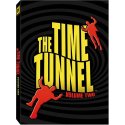I’m a TV writer/producer and a novelist. I don’t buy scripts, finance movies, publish books, or take on apprentices. And I’m not a celebrity.
Even so, every day I get emails from strangers asking me to buy their scripts, read their scripts, plug their blogs, blurb their books, or take them on as apprentices. I still don’t understand why. But the vast majority of those appeals are so badly presented, I can’t imagine that any of them could ever work. Here’s a sampling of some I’ve received this week, the names have been changed to protect the guilty.
I think this woman wants me to take her on as some kind of apprentice…or buy her life story…or just pay attention to her. I’m not sure:
I’m a 36 year old
black woman who has always desired to write for a living. Thus my blog at XYZ. Please don’t think I’m some rags to riches story in the
making as I’m not. The closest I’ve ever been to the ghetto was driving
past fast on my way to visit some unfortunate relative. LOL! I am
FABULOUS. just FABULOUS as you’ll soon find out. I have a gazillion
ideas and a gazillion/gamillion stories.[…]
Please visit my site and take me on as someone to mentor. You could be the man who
discovered the next Shonda Rhimes. Come on…take a chance. I’m EXACTLY
the sort of story Oprah would EAT UP!
Another complete stranger wants me to call him or give him my phone number using this come on:
I’m the publisher of XYZ.com, which is regularly ranked in the Top 5% off all sites on the web and cited by international, national and regional media. Is there a number I might reach you at or can you please call me at XXXXX when you have a moment?
Why would I want to do that? When I asked him what he wanted to talk about, he replied:
A forthcoming online project I’m working on.
Uh-huh. Needless to say, I haven’t called. Another person wants me to read his script:
Please take a look at XYZ. We are now being read by the Hallmark Channel, Noah Wiley, Erique LaSalle and John Schneider and Albert Brooks’ manager. We look forward to hearing from you soon.
Why would I want to read the script? What’s the point? And if all those stars are reading the script, what the heck do you need me for anyway (though, in point of fact, the stars aren’t reading the script, their "reader" is reading the script).
A self-published author wants me to blurb his book:
My first novel is now on sale. Please see: XYZ.com. I’m writing to request a blurb and any other help you believe is appropriate for its promotion. I’ve receive several blurbs, including one from XYZ, that I will put on a poster to boost local
attention.
Who could resist a note like that? Not only will I blurb it, I’m going to give him the deed to my house.

